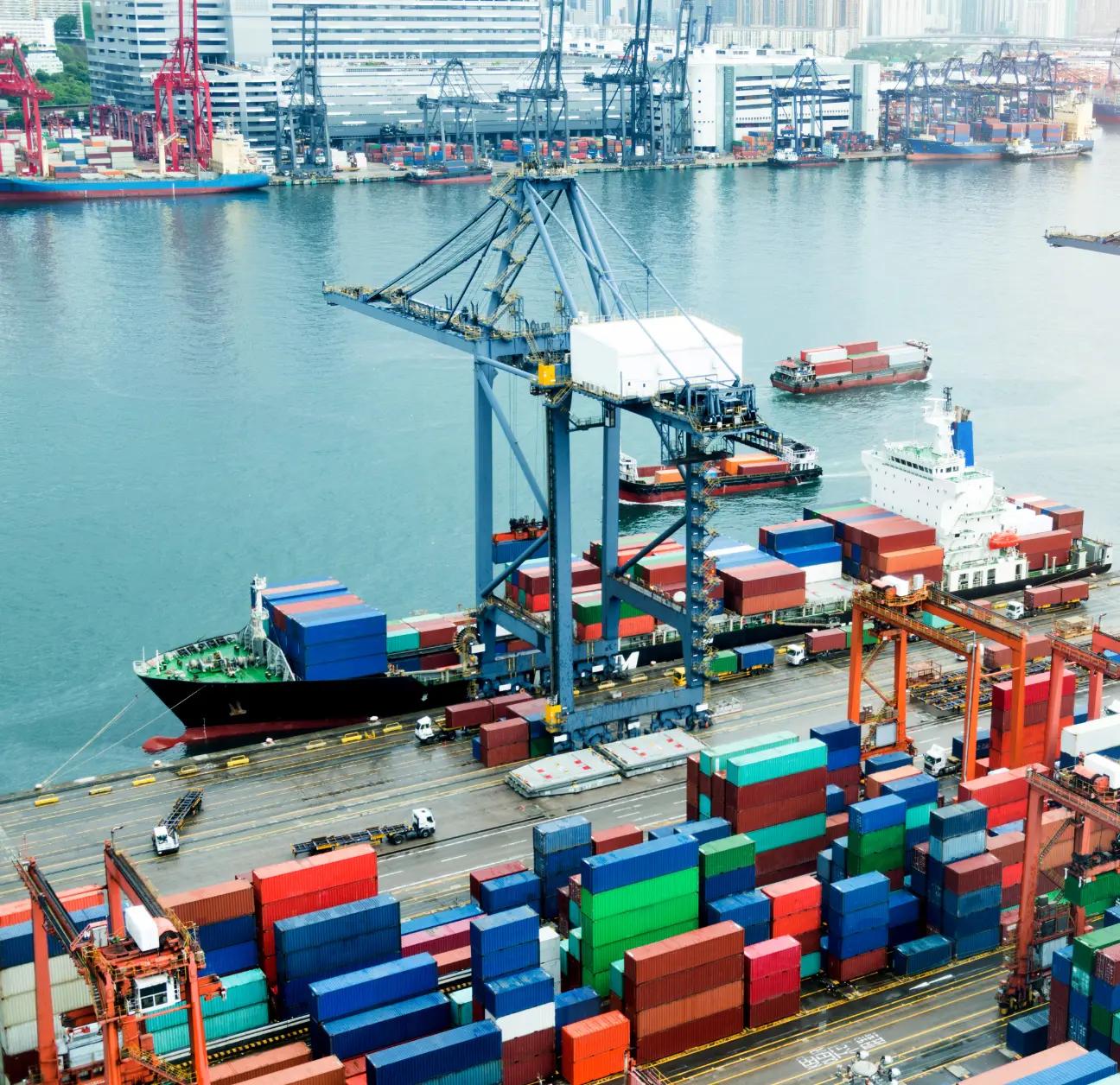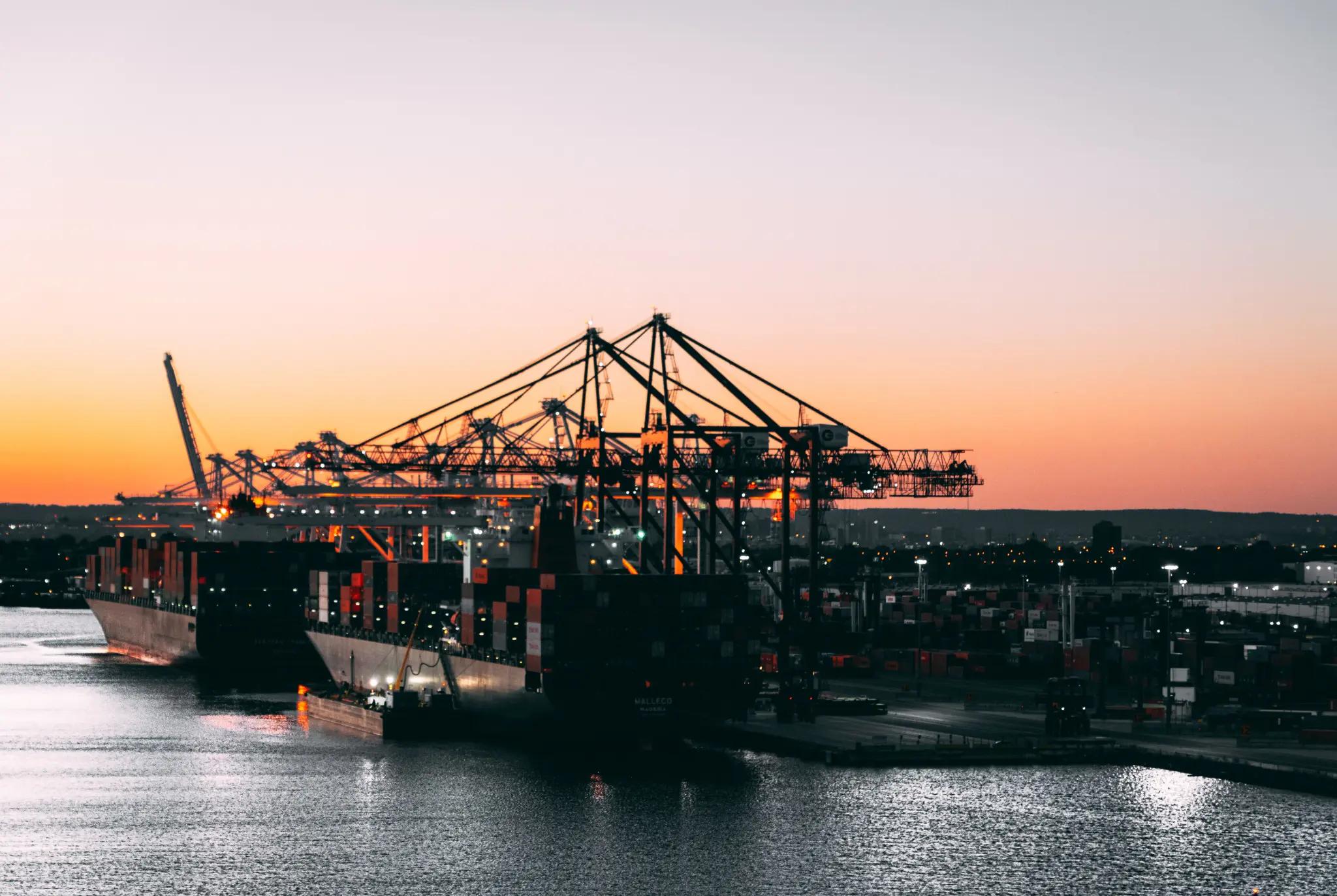We've completed logistics and supply chain automation projects in weeks that our customers were told would take months. We finish integrations fast, freeing up resources to focus on innovation and service without bogging down internal IT teams.
Supply Chain Automation Solution
The supply chain industry is not immune to technological disruption, even if it may be slow to change. Recent trends indicate that it could be a very good time for supply chain companies to adopt more digital solutions and embrace the advancements of technology in the supply chain field. There are many kinds of technology that can create advantages for companies in the supply chain industry. For example, supply chain automation solutions can greatly improve efficiency for businesses in various ways.
Supply chain automation is the process of implementing technology solutions that can carry out supply chain processes automatically without regular input from human workers. Now that we’ve gotten the standard supply chain automation definition out of the way, what kinds of tools can a supply chain organization incorporate? There are a few different types of supply chain automation solutions your business could implement. One example is Chain.io.
Chain.io is a systems integration platform designed to enable logistics service providers, shippers, and software companies to create an interconnected network of logistics technologies. Many different companies may be involved throughout the supply chain, but if every company uses different technology to do business, it makes it difficult to communicate. Chain.io can address this issue by enabling faster, easier, more secure integrations between logistics technologies, which can streamline efficiency and productivity in many ways.
Many people believe that automation in industries like the supply chain industry could eliminate the need for skilled workers. However, exactly the opposite may be true. In a McKinsey & Company survey conducted in 2021, 99% of the companies that responded said their digitization efforts necessitated more employees with digital supply chain skills. This is one example of recent supply chain automation statistics that indicate that digital supply chain solutions are on the rise.
As you can see, supply chain automation does not necessarily eliminate positions in the supply chain industry. Supply chain organizations often need employees who have spent time and effort developing digital supply chain logistics mid-level technical knowledge. The National Center for Supply Chain Automation is an organization that seeks to enable more people to become skilled digital supply chain technicians.
Automation in Supply Chain McKinsey
Supply chain automation is developing in a lot of ways. Autonomous supply chains are becoming more and more common throughout the global supply chain. However, a common issue is that many companies using AI in supply chains are investing in individual, siloed solutions that do not communicate well together. By focusing on individual solutions instead of adopting a bigger-picture approach, some companies have not been getting the whole benefit of automation in supply chains. McKinsey & Company research from 2022 suggests that the most effective way for companies to automate their supply chain processes is to invest in end-to-end automated solutions.
The future of AI in supply chain management looks bright. Research on the topic of machine learning in supply chains indicates that introducing artificial intelligence can improve efficiency in supply chains. Businesses that implement automated solutions could gain a competitive advantage. In fact, in a Gartner survey from 2022, 61% of respondents said they consider technology to be a source of competitive advantage in the supply chain industry. Regardless, there is little doubt that many companies are embracing AI in the supply chain. McKinsey and Gartner's research both support this idea.
Supply Chain Automation Companies
There is a wide variety of supply chain automation companies offering supply chain automation solutions. The benefits of automation in logistics and supply chain management extend across multiple industries, from automation in the transportation industry to the top warehouse automation companies.
Supply chain automation involves many different kinds of specific solutions. In the logistics automation market, you might find many logistics automation software, whereas other industries with different unique supply chain management needs might use different kinds of automation solutions besides logistics automation examples. If you’re searching for a digital supply chain automation solution, it might be more helpful to narrow your search right from the start by searching for solutions within your industry.
One great example of a supply chain automation company is Chain.io. Chain.io is a supply chain systems integration platform that can function as a universal adapter to connect the business applications that your business partners, customers, and software vendors. Chain.io is specifically built to help logistics service providers, shippers, and software companies connect their supply chain ecosystem so they have better visibility into their shipments and supply chain activities.
Supply Chain Automation Trends
As mentioned previously, recent research from Gartner and McKinsey indicates a few particular supply chain automation trends. In particular, these trends have to do with the kinds of supply chain automation tools companies are using.
According to surveys from top researchers at McKinsey, Gartner, and FreightWaves, supply chain technology trends in 2021 indicate that many companies are moving toward leveraging technology such as supply chain automation software. Some sources suggest that the supply chain automation market size is growing and is already nearing $60 billion per year. Companies that do not take advantage of digital tools for supply chain automation whatsoever could even be at a disadvantage in some cases. Supply chain technology trends in 2022 have not proven 2021’s predictions wrong so far.
Here are a few examples of the kinds of technologies companies are leveraging to automate and improve their supply chains:
- Autonomous supply chain technology
- Supply chain machine learning
- Blockchain technology
- Artificial intelligence
- Serverless architecture
- Canonical data
Supply Chain Automation Examples
Supply chain automation can come in many different forms, and not every kind of supply chain automation is the same. For instance, Amazon's supply chain automation may not work the same way or offer the same benefits as supply chain automation from other companies. Different solutions from different providers may carry distinct supply chain automation meanings and come with unique benefits or drawbacks. Let’s look at a few supply chain automation examples from Chain.io in particular.
Data Routing
One of the most frequent supply chain challenges encountered by many businesses is that it can be difficult to move data between different systems. Freight forwarders, in particular, need to be able to communicate large amounts of complex data between internal systems, clients’ systems, and partners’ systems. Automated data routing tools can make it possible to connect disparate systems and route data through them accurately and effectively.
Freight Operations
Chain.io also provides automated tools for managing freight operations. Businesses can use freight operations automation to streamline processes like sending and receiving bookings, invoices, attachments, and ISF details to and from customers. You can also use Chain.io's freight operations solutions to send shipment milestones or Advanced Shipment Notifications to shippers.
Accounting Automation
Another kind of supply chain automation solution is accounting automation. Chain.io’s accounting automation tools can help companies improve accounts receivable processes by setting up automated payment options. You can also streamline your whole digital payment process by making it easier to send invoices or other documents to your business’s payment processing platform.
Even though each of these solutions is designed for a different purpose, they each ultimately provide similar supply chain automation benefits. Supply chain automation can help businesses in the supply chain industry simplify processes and increase efficiency in many different ways.
Supply Chain Statistics 2022
Supply chain automation software can play a useful role in nearly any commodity chain. Automation tools can provide a wide range of benefits for businesses in the supply chain industry, depending on the type of solution. Logistics managers at freight forwarding companies can use Chain.io’s supply chain automation solutions like data routing automation, freight operations automation, and accounting automation to improve efficiency in many ways.
Explore SolutionsThe benefits of supply chain automation are well-documented. There is plenty of research to back up the idea that automation and other technologies are the future of supply chains. McKinsey and Gartner have both conducted research that supports this prediction. Supply chain statistics in 2022 are still ongoing, but so far, trends continue to point toward an automated future.
The Future of Supply Chain Automation
The future of supply chain automation looks likely to be shaped by supply chain technology trends, including machine learning, blockchain, and artificial intelligence. Forward-thinking companies that embrace technological innovations like these are most likely to succeed in the supply chain business. According to research from organizations like Gartner and McKinsey & Company, incorporating automation appears to be one of the keys to scaling and growing a freight forwarding company.
As the future of supply chain management after COVID-19 continues to take shape, there is evidence to support the idea that AI is intertwined with the future of supply chains. 2022 research from Gartner predicts that by 2026, 75% of commercial supply chain management applications will utilize artificial intelligence and deliver advanced analytics and data science.







